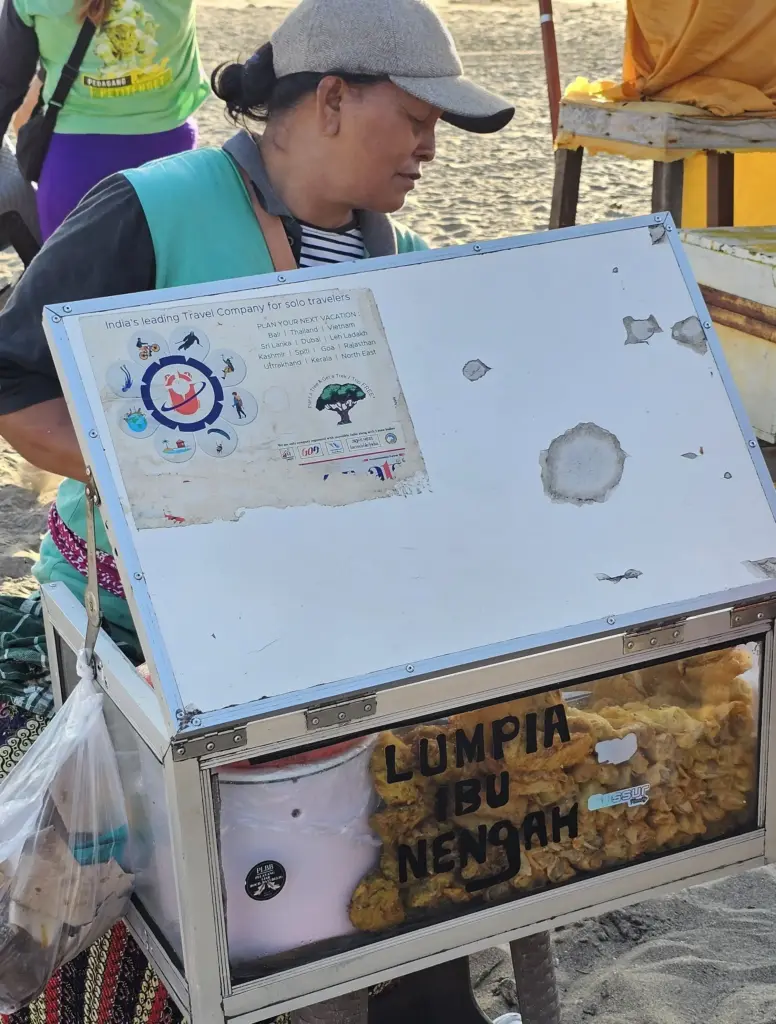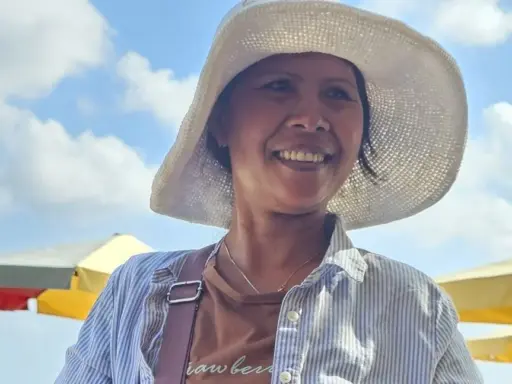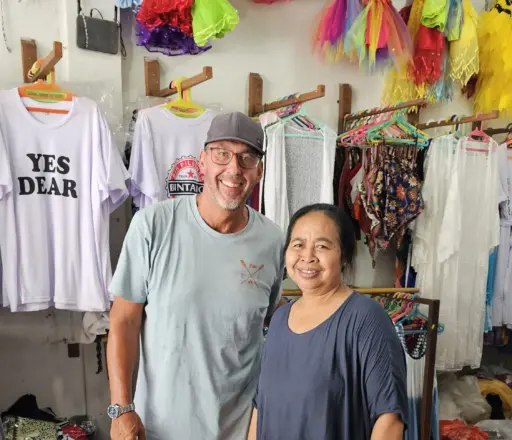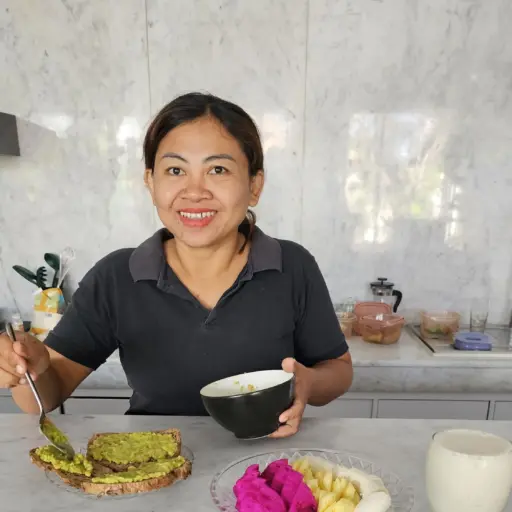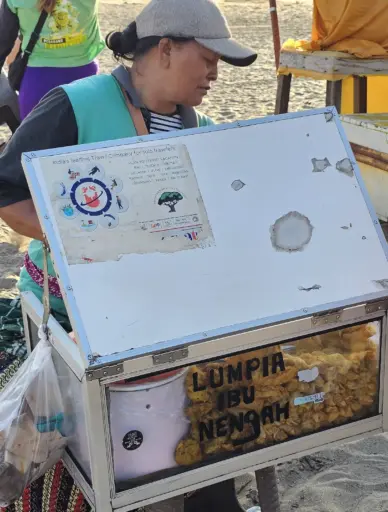If you stroll along Petitenget Beach in the late afternoon, you might see Nengah standing behind her small cart, smiling as she offers crispy fried snacks, known locally as gorengan. While her cart may look simple, behind it is a life story marked by resilience, quiet determination, and an unwavering spirit.
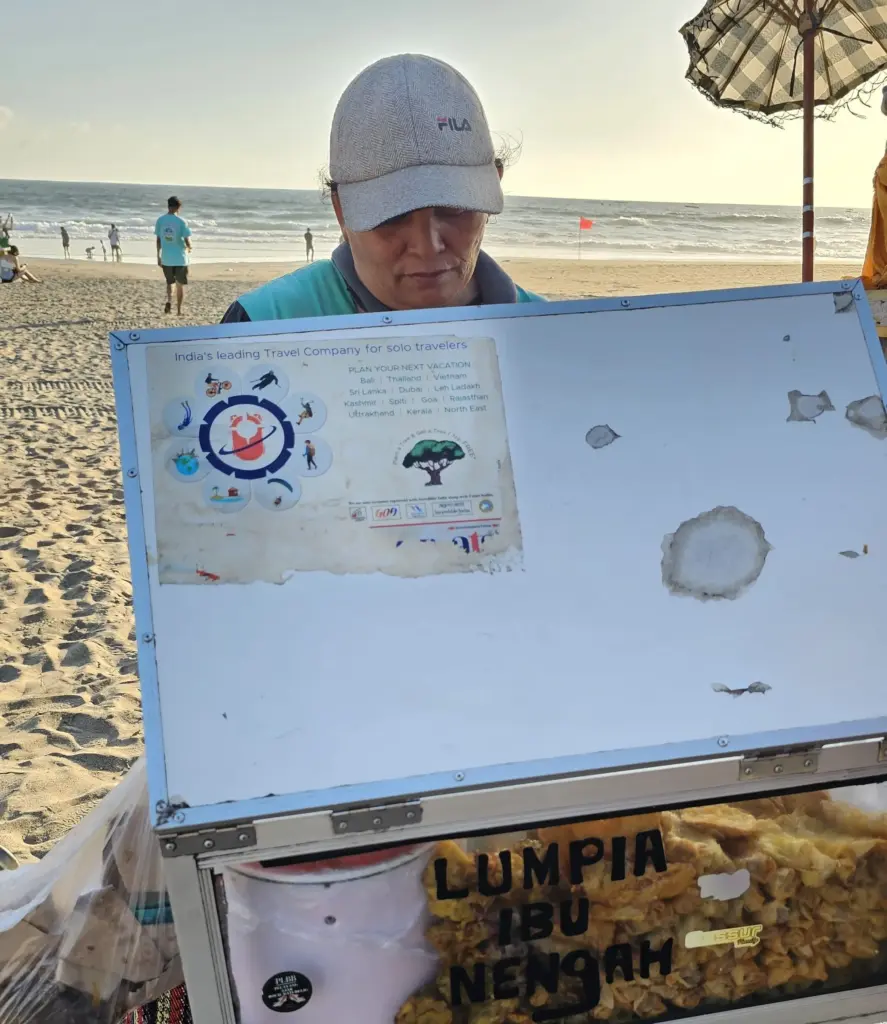
Nengah was born in December 1980 in Karangasem, a regency on Bali’s eastern side known for its dramatic coastlines and strong traditions. She grew up there with three brothers and a sister. Life was not always easy. Her family worked hard to make ends meet, and school was never a big part of her world. She stopped studying after the fourth grade. Partly because she did not enjoy school, but also because her parents simply could not afford to keep her there.
From a young age, Nengah knew that she wanted to work. She wanted to earn money and help her family. At just 16, she started her first job as a road construction labourer. It was gruelling work under the hot sun, and she still remembers it as the hardest job she ever did. Later, she worked as a pembantu, essentially a housekeeper, taking care of other people’s homes.
Today, she lives in Pemogan, in the southern part of Denpasar. She moved several years ago to be closer to work opportunities. Her father sadly passed away two years ago, but her mother is still alive and keeps busy making tipat, woven coconut leaf parcels used in offerings. Nengah often talks about her mother with affection, admiring her dedication to small daily rituals that mean so much in Balinese culture.
Nengah is happily married. She met her husband in the same village where she grew up, which is quite common in Bali. They do not have children, but she speaks warmly about her husband and how they support each other.
Her current job, selling gorengan on the beach, is what she considers her best job yet. She enjoys it because she feels more independent and can connect directly with people. She buys her ingredients early in the morning, heading to the market around 5am. After returning home, she starts preparing the food. Her days are full. She balances housework, cooking, and looking after her husband and mother. She tries to rest for about an hour before she packs up and heads to Petitenget Beach to be ready selling the gorengan by around 4pm.
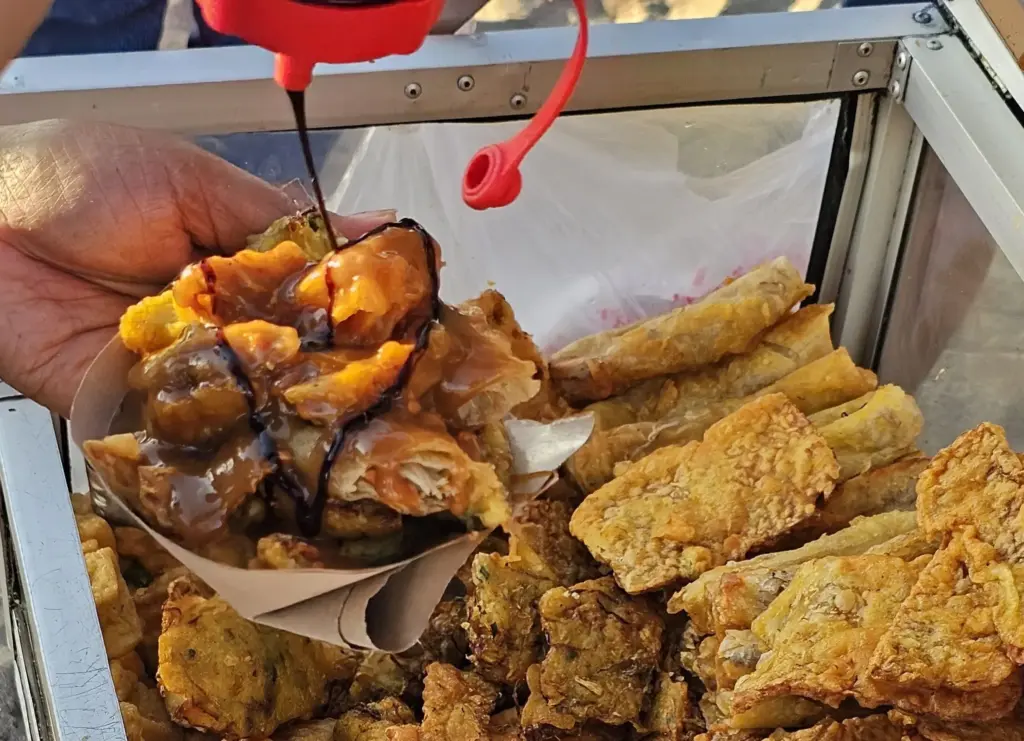
Gorengan is an Indonesian term that refers to a variety of deep-fried snacks. It literally means “fried things”. It is normally made from items like tempeh, tahu (tofu), pisang (banana) and bakwan (vegetable fritters). The ingredients are coated in a simple batter made from flour, water, and a bit of seasoning. They are deep-fried in hot oil until golden and crispy.
At the beach, she has a small stall and waits for her regular customers, mostly local Balinese families who come to enjoy the sunset and a light snack. She usually sells until 7pm or until her food runs out. It is not easy work. She has a boss whom she must pay each week, which can be stressful when business is slow. Still, she feels proud to make enough to scrape by, even if it means working when she is tired or unwell.
Money is a constant challenge for Nengah. She says the hardest part of life is not having enough to pay bills or enjoy small pleasures. But she does not dwell on it too much. She keeps going because she has to, and because she wants to support her family.
When she does have rare moments of free time, she mostly uses them to rest. Sometimes she catches up with friends, sharing stories and small laughs that bring comfort after long days.
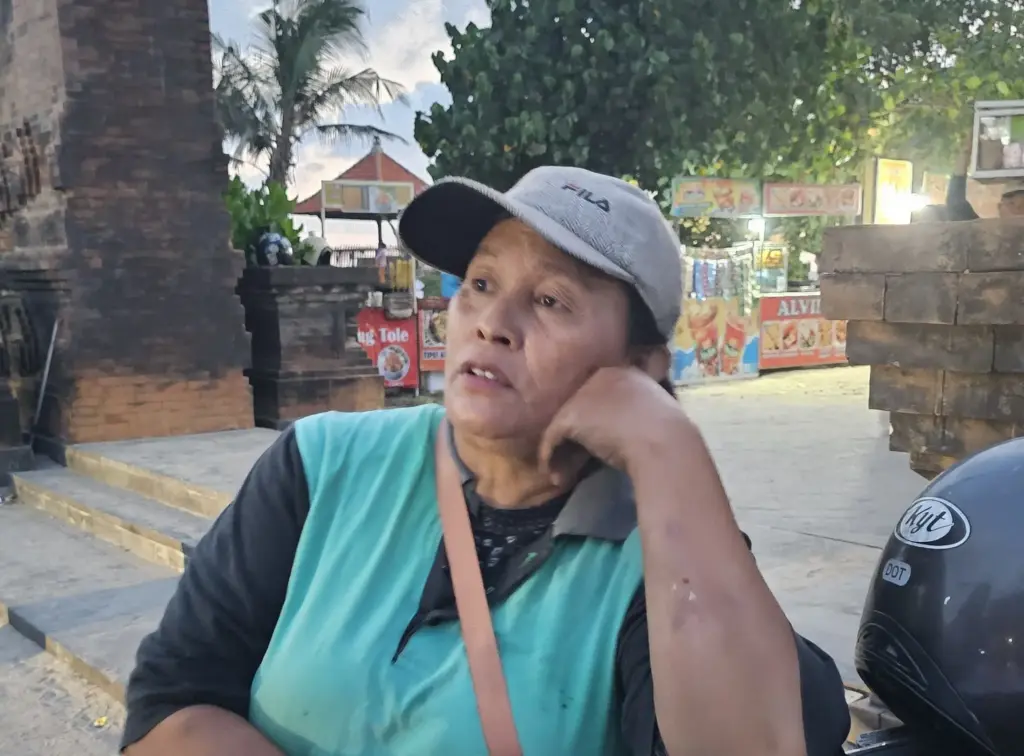
Nengah’s dream is simple but meaningful. She hopes to save enough money to open her own small shop or warung one day. A place where she can sell food without having to pay a boss, and where she can feel truly independent.
Her favorite food? Babi guling which is Balinese roast pork, usually reserved for special occasions and ceremonies. Whenever she gets to enjoy it, she savours every bite as a well-earned treat.
Despite the daily struggles, Nengah carries herself with warmth and quiet strength. If you pass by her stall on the beach, take a moment to stop and say hello. Try her fried banana or tofu, and you will not just taste a snack, but a small piece of her life story, a story woven with hard work, family ties, and an unspoken hope for better days ahead.
